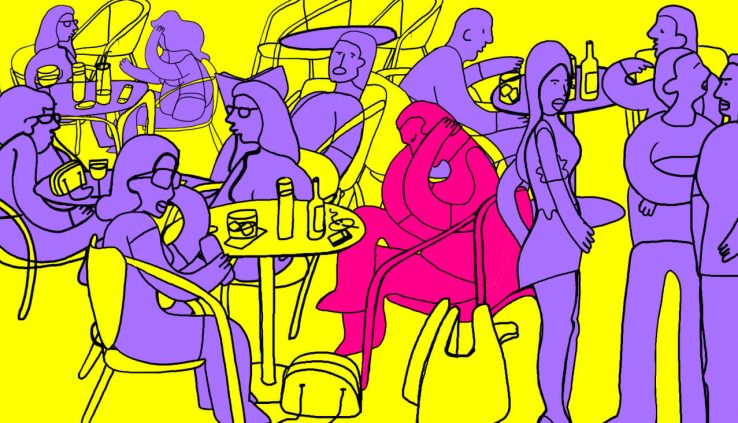There’s an enduring myth that an extrovert with social anxiety constitutes something of a contradiction in terms. Perhaps this shouldn’t be surprising though. After all, intuitively it can be challenging to reconcile extroversion’s characteristic need for social interaction with the crippling social paralysis associated with social anxiety. Moving beyond this unhelpful misconception requires an appreciation for the fact that social anxiety is not dependant on underlying personality traits. As such, it requires an acceptance of the fact that extroversion and social anxiety are not mutually exclusive.
The practical reality of coping with social anxiety as an extrovert can represent something of a double bind. Social interaction, the very thing that energizes an extrovert, also so happens to be a source of terrible anxiety. This internal conflict pulls in opposite directions towards the same isolating outcome. So, where, communal settings devolve into a minefield of negative thoughts focusing on social rejection, pulling back from social interaction only leads to lethargy and depression.
A socially anxious extrovert may display a number of characteristic traits. Typically, they have an aversion to committing to impulsive plans, long waiting times, or personal compliments. They tend to avoid going places unaccompanied or confronting people. They have a distinct propensity for changing plans at short notice. 
There is a range of helpful approaches open to the individual looking to overcome social anxiety. Confiding in friends can mark the first step toward establishing a support network. In turn, this trusted circle of friends can help to de-escalate anxiety-inducing social interactions. Furthermore, mindfulness practices can help encourage a socially anxious extrovert to avoid fixating on sources of anxiety. Similarly, the act of reframing negative thoughts in unequivocally positive terms can be hugely beneficial.
By challenging anxious thoughts through engaging in proactive behavior, an extrovert with social anxiety can identify their core beliefs. Unveiling core beliefs is significant as it reveals the hidden source of much anxiety. Moreover, once unveiled, these core beliefs can, in turn, be challenged themselves and, as a result, anxiety levels can be markedly reduced.

